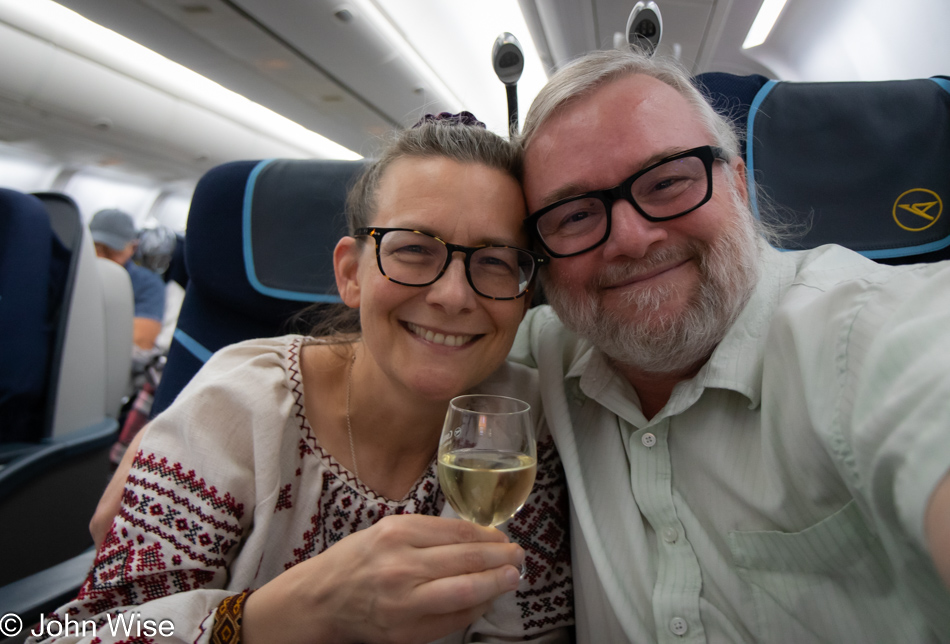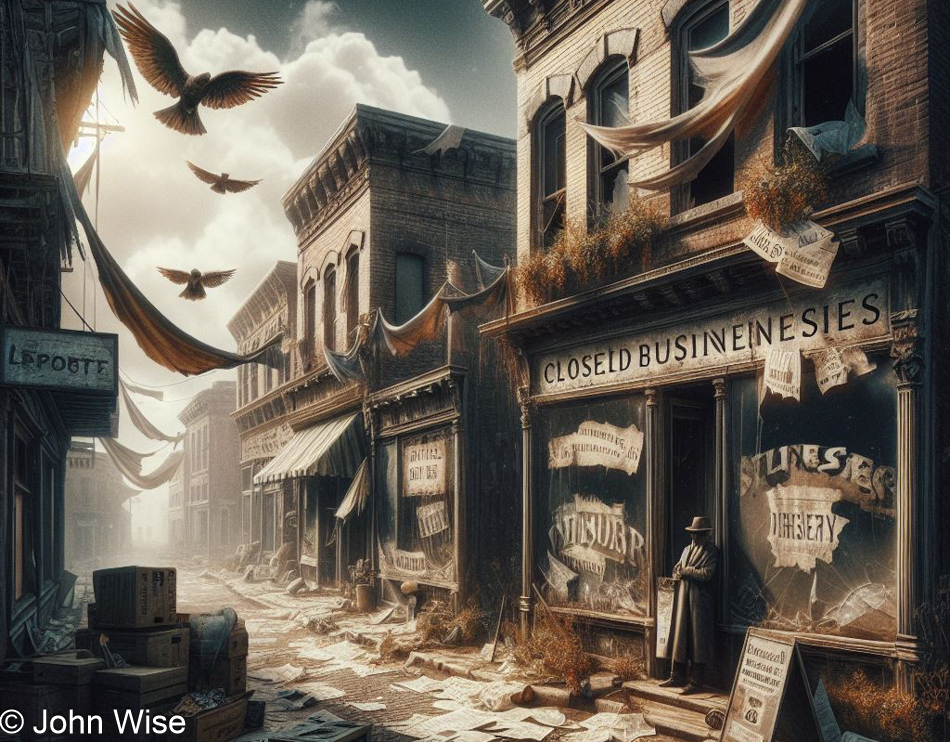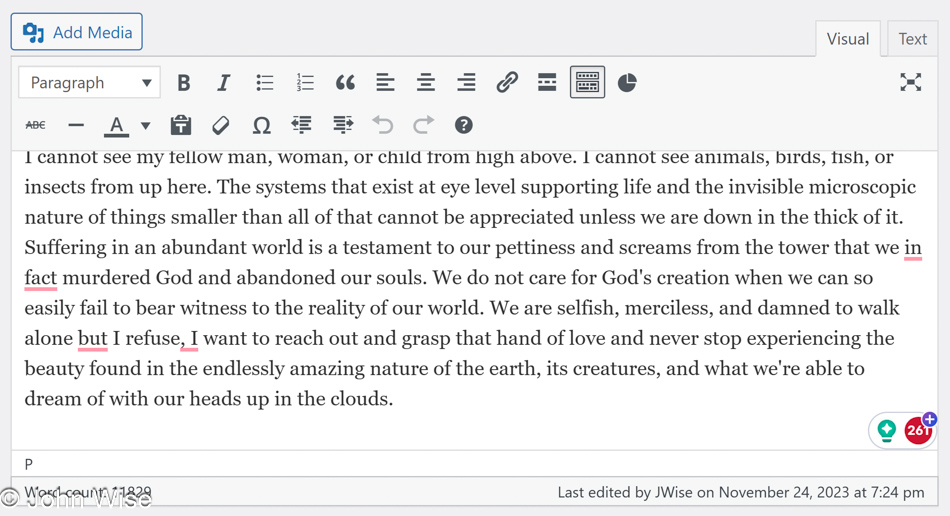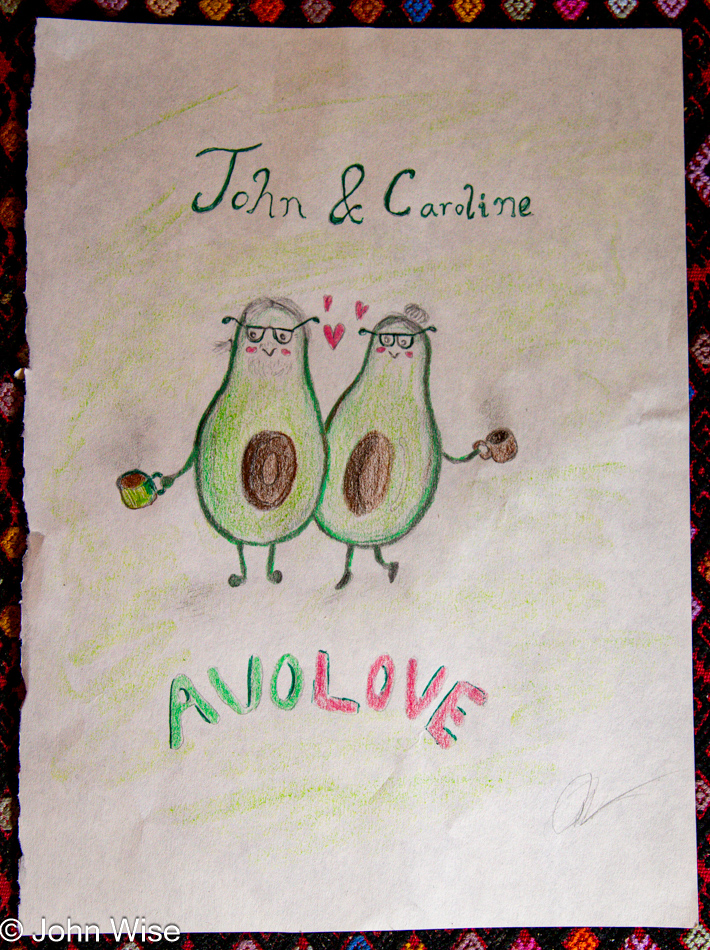
In momentous personal news, preparations have concluded, and mere minutes remain before our position on the globe will transition to another continent. With that, I needed to turn my attention to finish writing about our weekend visit to Kartchner Caverns, as I certainly don’t want to drag unfinished details into our vacation plans.
At first glance, it might be obvious that we are not in America, not in Arizona, not at home, but that would be a false conclusion based on what you think you see. First and foremost, we are still within ourselves, though the physical positioning of our bodies will be in a location other than what is more typical for our existence. I need to break away from that paradigm and become unseen in this image that betrays what I’m trying to claim. You see, I don’t want to create envy, I would rather share a desire to have gathered more and created more intrinsic value to dreams than to demonstrate our ability to consume.
When you see images of Caroline and myself on these pages over the coming weeks, they are not posted here to show the reader/visitor that these are the faces of the fortunate; they are meant to become vivid reminders that the profound experiences brought into our senses, were in fact, taken in by the two people in the photos. We become incredulous over time that these experiences were our own. On that note, there is a striving to find more than what can be represented visually and hence the nonstop effort to write through attempts of discovery at what is not immediately seen but hinted at through some level of vague understanding. In this sense, I tend to dislike the selfies and feel more meaning is shared through interpretation than through images of us in iconic locations.
I can’t emphasize enough that we do not travel for prestige or to make impressions upon those who desire to envy others for their good luck; we venture into our minds and imaginations for the edification of a deep part from within our souls. Travel is but one aspect of that process that also relies on books, music, and exploration of our local environment, while on rare occasions, we can indulge in conversations with equally curious people that extend how we rewire our brains and enrich our lives.
Aside from our own publicly available journal, where we’ve selectively allowed others to peer into some of the minutiae of the day, we are leaving traces for future generations to more accurately understand where we’ve traveled both literally and figurately in our growth towards our own end. The world of my grandfather in post-World War II America was a wildly different environment of small roads, faraway places, mom-and-pop diners, motels, and destinations where services might be uncertain. Compare that to our time with major highways; we can travel with cars that don’t run on gasoline, cheap airline tickets that can whisk us closer to our destination and can have an Uber deliver us the last miles, diners which are mostly gone, replaced by franchises that serve the exact same food as a location 2,000 miles away, electronic maps that work on phones that are often smaller than the pack of cigarettes my family would have been smoking, and lodgings that are air-conditioned with free WiFi, pools, gyms, and earn us points for discounts on other stuff. To believe that our travel experiences in the 2020s will be like those who will be following in our footsteps in the last decade of the 21st century is folly.
While we can glance back at the black and white images of “classic” cars traveling down Route 66 and gaze upon the old postcards of places that no longer exist, what is rare from that time is the narrative of where those travelers were intellectually as they embarked on adventures into places that were exceedingly distant in ways other than distance. Our world, on the other hand is instantly available where we can easily find what time sunrise will be a year into the future. We can drag an icon onto a map and travel down the street to see a place before ever being physically present, and we can read the reviews of people from around the globe who extoll the delights of a restaurant or hotel or heap disdain upon the service that didn’t match the quality of what they’re familiar with from their far-away home.
The idea that the pampering of travelers and how well they were treated by those feeding, sheltering, or otherwise offering them services should be the core subject of what constitutes an immersive experience is tragically simple-minded, repulsive even. The primary subject of importance in travel is how the individual grows. But such is the nature of our social idolatry in a time where we are the fetish and demand that others worship us while we bask in perceived luxury. For Caroline and I, the intellectual and emotional aspects of travel are the most important, we are astonished that others are available on our behalf to make our explorations so simple and relatively comfortable. We are out here to honor our potential to gather knowledge and experience what remains of our cities, forests, oceans, museums, trails, and the earth in general.
The absolute miracle of having lived so long and seen so much is not lost on us; we are grateful that this peculiarity is our truth and is still an ongoing adventure with infinite potential. Many people who’ve learned about our next travel plans wish us good luck in seeing things or having favorable conditions for the duration of our sojourn into a place, and yet, I believe I can claim without exaggeration that none have ever commented on the opportunity for us to return as more enlightened people who were able to sample something from the depths of human experience that helped the romanticized heroes of the past gain immortality in their own observations outside of their routine. Do others not travel with expectations of discovering intellectual magic extracted from the immense beauty of thrusting one’s self into new experiences? We are not trophy hunters; we are too ravenous to know ourselves better than to waste our time on egos.





